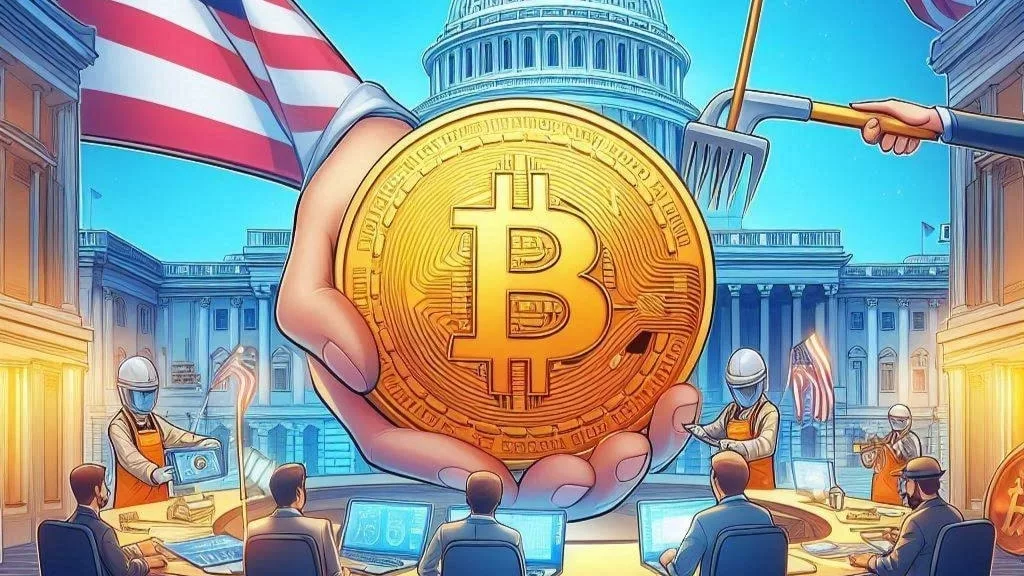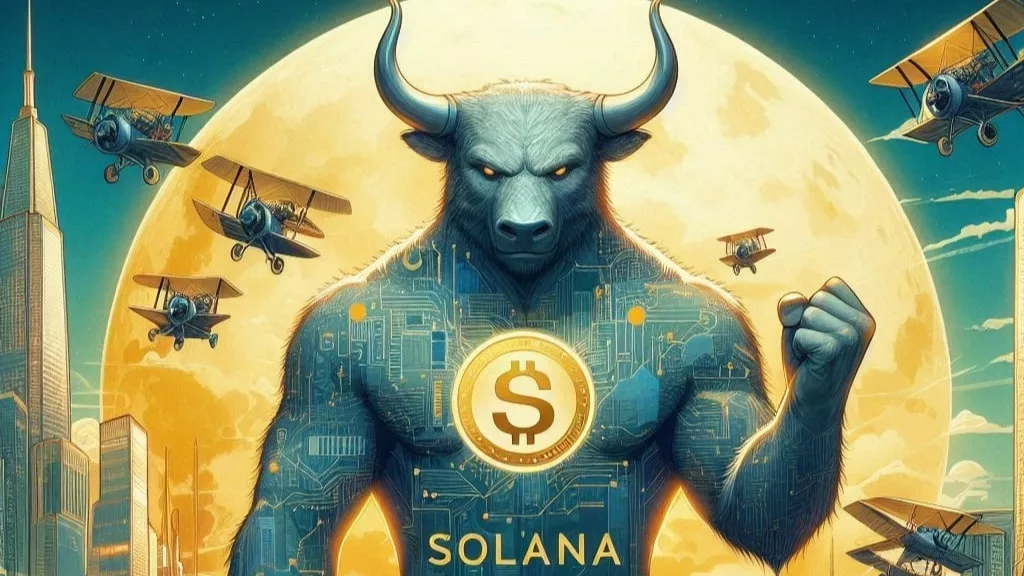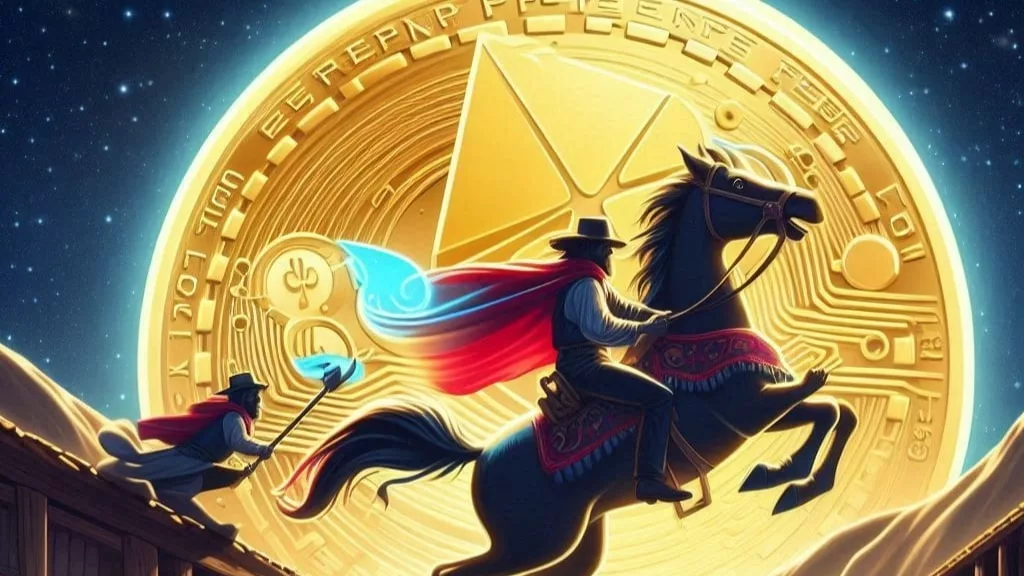
The idea of the United States government holding Bitcoin as a strategic reserve asset is gaining traction, thanks to recent comments from Bryan Courchesne, CEO and founder of the crypto investment firm Daim. Courchesne’s insights suggest a significant shift in how the U.S. might integrate Bitcoin into its financial system. This article explores the potential implications of such a move and highlights former President Donald Trump’s increasing engagement with the crypto industry.
Bryan Courchesne recently appeared on CNBC’s Fast Money to discuss the possibility of the U.S. government holding Bitcoin as a strategic reserve asset. He pointed out that the U.S. Department of Justice currently holds about 200,000 units of Bitcoin. This substantial holding positions the United States as the largest single holder of Bitcoin globally. Courchesne suggests that transferring these holdings to the Department of Treasury could be an efficient way to add approximately $13 billion worth of Bitcoin to the U.S. balance sheet.
“The Justice Department holds about 200,000 units of Bitcoin, so the United States is the largest holder of Bitcoin. They could easily just move that over to the Department of Treasury and start right there, having $13 billion worth of Bitcoin on the balance sheet,” Courchesne explained.
If the U.S. government were to officially hold Bitcoin as a reserve asset, it would mark a significant milestone in the cryptocurrency world. This move could stabilize and potentially increase Bitcoin’s market value by reducing the number of Bitcoins available for sale. It would also signal a shift in the government’s approach to digital assets, moving from a stance of regulatory caution to one of strategic integration.
Courchesne noted that the Justice Department has been a sporadic seller of Bitcoin, which can sometimes depress prices. Shifting to a long-term holding strategy could provide more stability to the market. “If they move from being a random seller at times, which could push the price of Bitcoin down, over to being a long-term holder, that could be really good for the space and push prices up,” he said.
Former President Donald Trump is set to play a pivotal role in the evolving relationship between the U.S. government and the cryptocurrency industry. Trump is expected to headline the annual crypto industry conference in Nashville, where he will likely discuss his views on crypto regulations and his support for Bitcoin and blockchain technology.
“About a month ago, Trump met with some Bitcoin miners,” Courchesne said. “We think he really got educated on the space, about blockchain, and how transactions are verified.” He believes that Trump will advocate for regulatory clarity and support for the crypto industry, countering the restrictive measures introduced by current SEC Chair Gary Gensler.
When asked about the possibility of Trump considering Bitcoin as a strategic reserve asset for the U.S., Courchesne acknowledged that there were discussions about it. Although implementing such a policy would be challenging, it is not outside the realm of possibility, especially given the existing Bitcoin holdings by the Justice Department.
There were some rumblings of that on X this week. It could be something that’s very difficult to get done, but it is possible, Courchesne said. The Justice Department holds about 200,000 units of Bitcoin. They could easily just move that over to the Department of Treasury and start right there, having $13 billion worth of Bitcoin on the balance sheet. It’s a possible move, but it could be tough to get done.
The potential policy shift towards holding Bitcoin as a reserve asset could have profound implications for the cryptocurrency market. By reducing the supply of Bitcoin available for sale, such a move could drive up demand and prices. This strategy aligns with Courchesne’s belief that a long-term holding approach by the government could benefit the overall crypto market.
In addition to his comments on government policy, Courchesne highlighted the importance of Trump’s support for Bitcoin mining within the U.S. He explained that Bitcoin mining operations tend to migrate to regions with the cheapest energy. In a pro-business environment, if Trump can help lower energy costs for miners, it could further bolster the domestic crypto industry.
Courchesne discussed Trump’s vision for increasing Bitcoin mining activity in the U.S. He pointed out that Bitcoin mining is highly dependent on energy costs, which fluctuate based on regional availability and policy. “Bitcoin mining: it moves around quickly to the place where it can find the cheapest energy. At times, it’s Texas, and it’s moved to New York and it’s moved to Wyoming and it goes back to Texas,” he explained.
He emphasized that creating a pro-business environment with lower energy costs could make the U.S. more attractive for Bitcoin miners. This, in turn, would allow miners to hold more Bitcoin on their balance sheets, reducing the supply available on open exchanges and potentially driving up prices. “If Trump is able to lower these energy costs for these miners, these miners will then be able to hold more Bitcoin on their balance sheet, further reducing the supply that’s available to acquire on open exchanges of Bitcoin, and that could further reinforce the price and help it go up higher,” Courchesne said.
Courchesne acknowledged that it would be impossible to mine all Bitcoin within the U.S. due to the global nature of the industry. He noted that mining operations are spread across the world, moving to regions with the most favorable energy deals. Despite this, he believes that increasing the share of Bitcoin mining activity in the U.S. would be beneficial for the industry.
It’s impossible to mine all Bitcoin in the United States, Courchesne concluded. “But more mining activity here is always better for the space. There’s a wide diversification of miners. They’re spread all across the world, and it really goes to where is energy the cheapest. If you could even put free energy here, another country will give incentives to have Bitcoins mined in their country. It’s just something that won’t get done. 100% of the Bitcoins mined in the United States won’t happen, but more of it happening here by many different companies is always better for the space.”
The notion of the U.S. government holding Bitcoin as a reserve asset represents a transformative idea in the world of finance and cryptocurrency. Bryan Courchesne’s insights offer a glimpse into how this integration could stabilize and elevate Bitcoin’s market value. With former President Trump’s increasing engagement with the crypto industry and potential regulatory shifts on the horizon, the future of Bitcoin and blockchain technology in the U.S. appears promising.
As the U.S. navigates its evolving relationship with digital assets, the cryptocurrency market continues to watch closely. The implications of these developments could shape the landscape of crypto investment and regulation for years to come.



Get the latest Crypto & Blockchain News in your inbox.